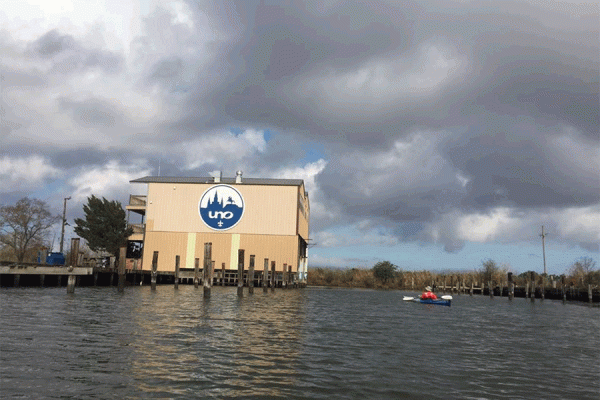Since its inception in 2001, the focus of the University of New Orleans Pontchartrain Institute for Environmental Sciences (PIES) has been on addressing coastal and environmental issues. A three-year, $568,000 grant for the Louisiana Board of Regents will help PIES be better suited to tackle problems facing coastal communities in New Orleans and elsewhere by providing state of the art instrumentation and equipment.
“Our coastal communities are increasingly vulnerable to rising sea level, storm surge, land loss, declining fisheries resources, habitat loss and pollutants,” said Robert Mahon, assistant professor of earth and environmental sciences and the principal investigator for the grant. “PIES faculty have individual expertise spanning these threats, and we strive to pull our expertise together in one cohesive network to thrust PIES into a multidisciplinary future.”
The primary mission of the Pontchartrain Institute is to assist in dealing with the region's environmental and infrastructure challenges by fostering interactions among professionals with expertise in basic and applied environmental research, including those skilled in environmental management, social sciences and planning, Mahon said.
The new equipment completely revamps and modernizes PIES’ field and laboratory resources allowing them to address critical and timely problems facing Louisiana’s Gulf Coast regions and beyond, he said.
“We will establish a real-time monitoring network at eight sites across Lake Pontchartrain and Lake Borgne, which will provide hourly, public data via satellite and cellular networks on wave conditions and water temperatures, as well as a variety of water quality and fisheries acoustics data,” Mahon said.
The grant also will allow for the first major coordinated effort across the interdisciplinary PIES team that now includes nine faculty members from four different academic departments, Mahon said. The multidisciplinary team has faculty members from civil engineering, chemistry, biological sciences, and earth and environmental sciences.
The grant also provides updated equipment for UNO’s coastal education program based at the Coastal Education and Research Facility on Chef Menteur Pass in New Orleans, which houses outreach activities for high school and college students.
“We will also receive a revamp of departmental computer lab equipment, sediment coring and sampling equipment, some lab analytical equipment, as well as K-12 educational equipment,” Mahon said.
The grant’s co-principal investigators are earth and environmental sciences professors Madeline Foster-Martinez, Mark Kulp, and Martin O’Connell, biological sciences professors Kelly Boyle and T. Erin Cox, chemistry professor David Podgorski, and civil and environmental engineering professors Gianna Cothren and Satish Bastola.





